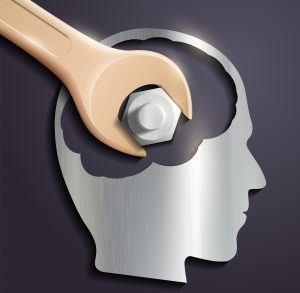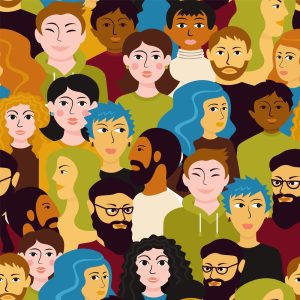Moral Theology and Psychology
Moral Theology has a meeting point in understanding immoral human behavior with Psychology. Since Psychology studies human actions and attempts to understand it, Psychology can hence play a role in understanding subjective and circumstantial aspects of a human moral action. Any action in Moral Theology is deemed just or unjust according to criteria. The action itself is considered objectively good or immoral. Theft is an objectively disordered and immoral action. It stands against the Natural Law as something humans can know as inherently wrong due to the ideal of personal property and space. The Divine Positive Law reinforces the evil objective disorder of theft through the 7th Commandment of “Thou Shall not Steal”.
In addition to the action, the subjective nature of the agent who commits the act receives analysis in Moral Theology. The agent’s culpability can be lessened or increased based on his or her knowledge of the action itself. Hence a person who may commit an immoral act out of ignorance, while still committing an immoral act, is less culpable before the eyes of God. Finally, the circumstances can reduce culpability as well. If a person steals food due to starvation, then the action and culpability is decreased as opposed to a person who steals from a struggling family or commits a bank robbery. Hence, while subjective and circumstantial elements can never objectively change the nature of an action, it can increase or decrease culpability afforded to the agent.

Psychology offers particular insight into the subjective element. In Moral Theology, the agent is the human person. Focus is placed on the human being, as the soul and body. The soul is comprised of the intellect and the will. Due to Original Sin, the mind and passions are not in harmony and this creates discord within the ability to choose morally and control one’s impulses. Moral Theology looks at how vice and virtue clash within the human soul and how habitual vice can rot the soul. Psychology looks at the manifestations of the soul through the brain and how the human agent responds to situations. Psychology reviews how neurons and neuron transmitters can affect moods and where primal reactions exist within the brain. It analyzes how the body produces various hormones which can also negatively affect moral decisions.
Stanly Milgram’s Experiments
Social Psychology extends beyond the subjective agent but also to circumstances as well. Social Psychology looks how learned human behavior and social pressures can play a role in human decision making. One of the most interesting experiments and studies surrounding this involved Stanley Milgram’s obedience experiments. At times controversial, these experiments would look at the role of authority upon individual immoral decisions.
The experiments were simple in design. An individual in a separate room, known as the “teacher” would hold access to a button that would send an electric shock to a person in a different room who was known as the “student”. Whenever the “student” missed a question, the “teacher” would be instructed to send a shock wave to the “student”. As missed questions accumulated, the voltage would increase till the point one could hear cries coming from the “student” in another room. Authority figures in charge of the study would instruct the “teacher” to nevertheless continue to impose shocks despite the cries.
Behind the reality of it, there never was a “student” but only a staff member mimicking pain. The experiment wished to see how far individuals would proceed with an immoral instruction from an authority figure despite one’s own moral convictions. Surprisingly, the experiment showed, 60 percent of the individuals continued supplying electric shock to the “student”. Obviously, this brings one to sharp conclusions regarding the morality and role of Nazi soldiers and guards during the Holocaust. What moral culpability did they hold? How powerful is the source of authority in making an immoral decision to potentially kill?
The experiment showed that depersonalizing the other human being played a large role easing the conscience of the “teacher”. Out of sight and out of mind played a big role in reducing the anxiety for some in pressing the button. This shows it is far easier for human evil to exist when the agent is further away from the sight itself. Also, the experiment showed, that when the authority figure was present, it made it easier for the “teacher” to proceed with his or her duty in delegating shock to the other person.
Moral Culpability and Cognitive Dissonance
Another principle at play in in this study was “Foot-In-The-Door Phenomenon” which teaches that agents if coaxed into agreeing to neutral or smaller tasks will later comply with larger requests. In the Milgram experiments, the “teacher” was asked to at first simply supply a mild shock. As the experiment progressed, the orders become more severe. In hindsight, Nazi soldiers may had been told at first to collect Jews and bring them to the camps. Later, they would be asked to inhumanely treat them, leading to finally the order to execute them.
So how far does culpability exist? In Moral Theology, hurting another person willfully is a objective immoral act, but does circumstance and subjective qualities lessen culpability for the agent physically committing the offense? As in criminal law, there are always more culpable agents. God’s moral law which is infinitely just and omniscient definitely understand this. Hence, for some agents, culpability is lessened more than others depending on their knowledge. Obviously, those who proclaim moral law over tyranny and die for it are the best humanity has to offer. Christian martyrs who rejected the law and orders of Caesar for the love of Christ are examples that a strong conscience can overcome any psychological manipulation but many individuals fall between the cracks.

Moral culpability like waves pulsate from the epi-center of the immoral act. The doctor who performs an abortion is explicit in his or her role in murder. This direct action holds the doctor to the highest culpability. The individual who supplies anesthesia to the pregnant woman for the abortion, plays a less direct role but still a fundamental part in the intent to kill the child in the womb. The receptionist at the abortion clinic, the janitor who cleans the clinic and the guard who holds back the protestors at the clinic all play roles to some extent. Some may even not necessarily believe abortion is moral but concede to the opportunity of employment or the excuse it is not one’s business. Likewise, Nazi guards who shot Jews, were merely the instruments. The orders from superiors all played equally if not greater moral culpability, but does the solider who guarded the concentration camp also hold some culpability?
The human conscience is supposed to irk the soul when it commits a sin. A good conscience will not allow one to sleep. In Moral Theology, a sound and good conscience is in correlation with the God’s law and will. Those with erroneous consciences or other types of improperly formed consciences will fall victim more easily to immoral authority commands. Yet, due to fear, or psychological manipulation, individuals with consciences will still try to make sense of their apparent paradoxical behavior. In Psychology, when a person attempts to balance his or her own belief with inappropriate actions, the person engages in Cognitive Dissonance. The agent may try to justify one’s actions to try to ease the conscience. In the case of the Holocaust, some soldiers may had justified the action as the reality of war, or believed in the dehumanization of the Jewish people as traitors to the Germany. With the abortion clinic example, the receptionist may conclude that it is not my business and not my body, or may attempt to dehumanize the child within the womb to a mere clump of unconscious cells. The guard outside the clinic or janitor may conclude that this job puts food on the table and his family needs the money.
It is truly a scary reality. Evil times can very easily bring out the worst of the worst but also sheepishly lobotomize the conscience of anyone with moral beliefs but no backbone or spine to defend what needs defended.
Peer Pressure
Human beings look to belong. They seek to find conformity within their species. Non conformity in the prehistoric times, meant isolation and death. It is a naturally wired thing for human beings to try to belong to groups. What happens when larger groups challenge the moral belief of an individual? In Moral Theology, it is the duty of the Christian to proclaim the Gospel despite social persecution. Christ, Himself, lamented that if the world rejects you, know it has rejected Me first. With such a warning, it should be obvious for Christians to realize that Christian beliefs and moral teachings will be at odds with the lies of the world.

However, there is still again the peer pressure of the world and one’s desire to conform to groups that are internally at war with the Christian conscience. Psychology again has some explanations regarding moral behavior. Solomon Asch provided some insight through his experiments on groups of three or more regarding the need to conform to a social group. In his study, individuals would be asked certain questions and a high percentage would answer correctly, but when put into a larger group, he noticed that when a controlled infiltrator purposely answered wrong, and this continued, it would play a role in others being wary to answer correctly. This experiment showed the power of a group presence to alter. It also shows the power of today’s politically charged world how powerful and dangerous gas lighting can be in public campaigns. The experiment also emphasized that when individuals feel different, or incompetent, or insecure, they are more likely to side with the majority.
Another example of conformity to immoral ideals based on social majority exists in both Psychology and Moral Theology. In Moral Theology, the occasion of sin refers to when one openly encounters sinful material that can negatively influence a person. These occasions can be persons, places or things. As with most situations, corruption usually weakens the whole. This is also a concept in Psychology under the term “Social Contagion”. In Psychology, it can also be a good force, but what it does point to is that individuals like to take upon the emotional tones of the surrounding company. If a group is more subject to foul language, does it cause discomfort, or does it push one to maybe swear more? If a group is drinking and smoking, is one more inclined to maybe just have one beer to fit in?
One interesting theory is “Group Polarization”. If like minded Christians come together in a moral discussion, the increase and enhancement of the moral topic will become more powerful. If condemning abortion, it will become more strong as the conversation occurs. Conversely, if like minded individuals with various prejudices come together, they may leave the conversation with far more prejudice than started. Again, for good or bad, this points to the power of peer and social groups in enhancing the need to conform.
Aggression and Harm
While Moral Theology teaches an objective action, such as “Thou Shall not Murder” and other ideals of not harming others as imperative and uncompromising, it still understand the subjective elements. Ideas such as self defense, or just war theory can come to mind. However, Psychology has given great insight to why certain individuals act aggressively from a neurological, genetic, biochemical and behavioral perspectives.
It has been scientifically proven that the Amygdala is a center for human emotion. It has also been noted during Fight or Flight, the Hypothalamus ignites the Pituitary Gland to infuse the body with hormones to prepare the body for stress and conflict. Furthermore, in more aggressive persons, it has been shown that under-developed frontal lobes, or even damage to them play a key role in aggressive behavior. From this, one can clearly notate a body-mind connection in behavior.

Unfortunately, due to Original Sin, the soul lost the ability to control the passions. Psychology illustrates how this lost of the passions operates in the mind and brain. It shows how neurotransmitters can alter behaviors due to less serotonin or dopamine, it illustrates how hormones can make one more aggressive at a given time, and it also demonstrates how even within the genetic code, some may be more aligned with anger.
Does this give one a free pass to commit immoral actions? The moral action will always remain immoral, but culpability is another story. For most, frustration, or low blood sugar can make one feel more irritable and can explain the urge to yell or be impatient or wish to push someone, but it does not justify. Albeit, one cannot control these elements of the body, as Pre-Fall Adam, one is still called to control one’s passions. It may offer an explanation, but it is not a free pass to be a nasty person. In this, one can marvel at the kindness and love Christ showed and in the lives of the saints. Virtue and good behavior can help balance one’s fallen passions to anger.
One must remember, humanity’s fallen nature and the inner inclinations are not sins but are natural impulses, but through the grace of the Holy Spirit, one is given the ability to better control these broken emotional systems.
The Need to Do Good
Humanity is created in the image and likeness of God. While the Fall of Adam damaged human nature, it did not destroy it. Humanity lost access to its great intellect and the super abilities of the brain, it lost control of emotions, and become subject to disease and death, but the inherent nature of humanity itself was still preserved. Humans still exist with a body and a soul that is made in the image and likeness of God. The will is hence enticed for good. Even when the corrupted will does wrong, it still perceives some sort of good, albeit selfish motives. Still, the will works with the intellect of the soul for the ultimate good of itself. Human beings are conceived and born good.
Psychology also notates the impulse to do good. With conformity and social bonds, the need to cooperate for the mere purpose of existence is programmed in humanity’s evolutionary genes. While good actions are produced through the grace of the Holy Spirit, the human species is also naturally looking to foster relationships and help others in distress. A few concepts illustrate the better side of humanity. In “Social Exchange Theory” , social behavior is seen as a trading of services where the goal is to maximize benefit and minimize discomfort to others. There is a “Reciprocity of Norm” concept that others will help those who help instead of hurt and that there is an innate “Social Responsibility Norm” that others will help those in need.

James Stuart Mills noted that human beings help others and perform good moral actions because it maximizes the overall benefit of humanity. It ultimately benefits the whole. This concept is known as Utilitarianism. In addition, one can see these concepts of helping others found in the most basic concept of the “Golden Rule”.
Teaching children to be good and kind is key at a young age. It is important to curb selfish egos and harmful behaviors. From a Psychological standpoint, this is a good idea for continuation of the species and maximization for human potential. When anti-social disorders erupt, under the guise of Narcissism and other more serious elements of Sociopathy emerge, then the concept of the Social Contract itself can collapse.
From a Naturalistic standpoint, it is hence self fulfilling to promote kindness and goodness. Even the atheist can contest the need for social harmony through human made laws but Christianity and Moral Theology demands more.
One does not merely perform morally neutral acts to promote unity and productivity but these act carry objective and inherent good, not just for its consequences but also because it is right and just and good before the Lord. The love of God is communicated through good and moral actions. The communal wholeness is not the aim but the consequence of worshipping and loving God and neighbor. There reward and beauty of kindness and good action is in itself a deep love for God Himself. In this way, Psychology is limited in understanding the greater depth that good action has beyond the empirical visible elements of social stability.
Conclusion
While Psychology helps one understand the physiology of how the soul, brain and body work together and how the fallen human nature operates, it is Theology, the first study, that fully explains the nature of good and evil and the objective nature of a human act. Psychology is a necessary aid in helping understand the subjective agent in human action, but it does not have the authority to objectively define good and evil in its most primitive forms.

Christian Counselors need to possess a strong understanding when giving spiritual direction to others regarding morality in these aspects. Christian Counselors can benefit greatly through the study of Psychology in understanding the subjective inner workings that play key roles in the human action. Since, spiritual advisors, pastoral directors and clergy help souls through moral decisions, it is important that they not only understand the spiritual aspect but also the mental and physical elements taking place that hold great weight in the subjective agent and ultimate culpability.
Please also review AIHCP’s Christian Counseling Certification and see if it meets your academic and professional goals. The program is online and independent study and open to qualified professionals seeking a four year certification in Christian Counseling.
Resource
“Exploring Psychology, 11th Edition”. Myers & DeWall (2019). “Chapter 12: Social Psychology”
Related Articles
“Thomas Aquinas: Moral Philosophy”. Floyd, S. Internet Encyclopedia of Philosophy. Access here
“What Was the Milgram Experiment?”. Cherry, S. (2022). VeryWellMind. Access here
“Here’s Why Some People Can Stand Up to Social Pressure”. Sanderson, C. (2020). Greater Good Magazine. Access here
“Solomon Asch Conformity Line Experiment Study”. Mcleod, S, PhD. (2023). Simple Psychology. Access here
